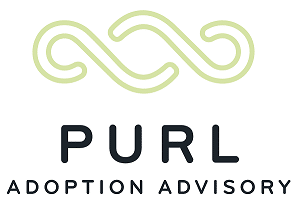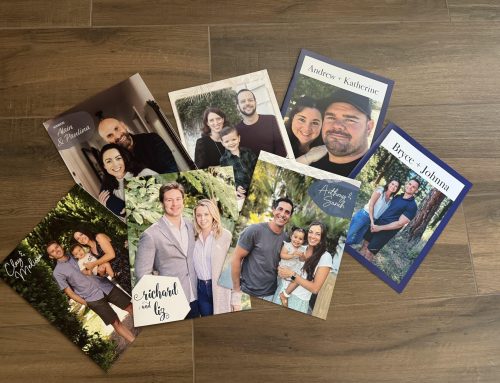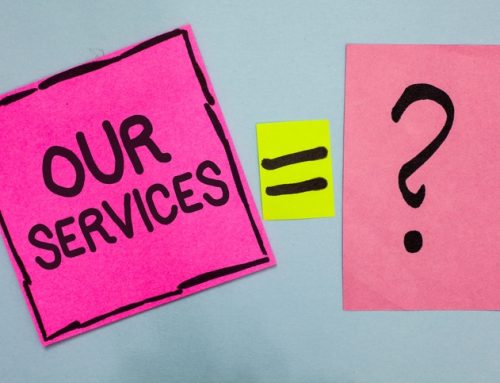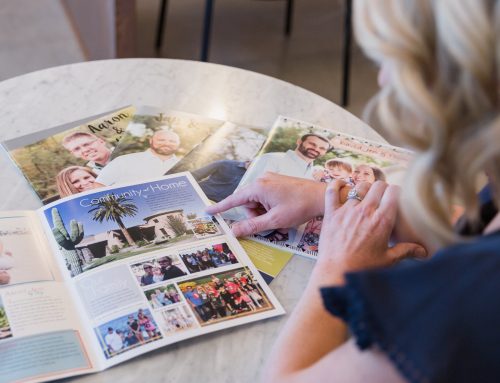
In today’s blog post, Adoption Advisor, Kelcie Grace, talks about the importance of NOT sharing your child’s adoption story. She urges adoptive parents to recognize that the entire adoption triad is involved in the adoption story and adoptive parents do not have the right, the permission, nor the experience to tell the story in its full context.
—
As an adoptive parent, it’s natural to want to share the joy and love you feel for your child with the world. Your journey to adoption was likely a long and complicated road that involved heartbreak and anguish yet resulted in the growth of your family and the addition of your child into your life. Adoption is a complex and sensitive experience, and adoptive parents need to recognize that the story of their child’s adoption involves the entire adoption triad (the adoptive parents, the birth parents, and the child). From the perspective of the adoptive parents, it was likely an experience steeped in love, gratitude, and positivity. However, before you share the adoption story with anyone, it’s important to take a step back and consider things from your child’s perspective and the perspective of their birth parents. While the story intimately involves you, it also involves vulnerable people who have not given their express permission to share nor given you their perspective to include in the narrative.
Adoptive parents can accidentally diminish the experience of their child and their child’s birth parents …
When adoptive parents take the lead in sharing the story of their child’s adoption they can silence their child and their child’s birth parent’s perspective. They inadvertently highlight and promote their own experience. If your child is young now, they will grow to have their own thoughts and feelings about their adoption and those thoughts and feelings may not all be positive. Your child’s birth parent had a completely different experience than you, one that involved the trauma of deep-rooted separation. Even in cases of open adoption, where a strong and positive relationship exists between the adoptive family and the birth parents, there will still be experiences of loss on the part of the birth parents. When you, as the adoptive parent, take the liberty of sharing the story of your child’s adoption you can unintentionally diminish the experience of the other two members of the adoption triad.
Young adoptees cannot give true consent to share their story …
Young adoptees, like all young children, are unable to provide true consent around the sharing of their stories until they are old enough to understand and express their feelings about what it means to share their life experiences with others. Some young children and youth may also be too focused on pleasing their adoptive parents to make authentic decisions about consenting to share their story of adoption. Sara Easterly shared some great perspectives from an adoptee’s point of view in her blog post “8 Important Dynamics to Consider Before Oversharenting Your Adoption Story”. Adoptees may have different feelings or perspectives on their adoption story than their adoptive parents. Adoptees may have feelings of abandonment and loss due to the very nature of adoption. When adoptive parents regularly share the story from their perspective, adoptees may have trouble distinguishing their own opinion within the told narrative of their adoption story. As your child ages they will form their own opinion on their experience and gain a better understanding of what they want others to know and understand. Adoptive parents should respect their child’s right to decide when and with whom to share those details. Aspects of your child’s adoption story may never be appropriate to share outside of your immediate family other than with your child’s doctors. This includes the health history of their birth family and their in-utero experience (drug and alcohol exposure for example).
Set clear boundaries of when and to whom you will share …
Adoptive parents will receive questions from friends, family, and strangers about the details of their child’s adoption story. Strangers may ask invasive questions about the adoption, even in front of your child, such as “why didn’t her parents want her?” or “how much did he cost?”. As a new parent via adoption, you may feel the need to jump to answer these questions to protect your child or their birth parent. It’s important, however, to consider the implications of sharing your child’s adoption story and the potential impact on the child’s birth family’s privacy. When others ask questions about the adoption story you have the opportunity to lead by example and demonstrate firm boundaries. The following phrases may come in handy: “That is not my story to tell” or “We don’t talk about this with strangers” or “Someday Jack may want to tell you that, but I will let him tell you in his own time” or “I can share some of the story from my perspective, however, Sally and Sally’s birth mom had a completely different experience than I did”. When your child hears you setting these clear limits, you give them permission to set them as well. Boundary setting is a form of self-care and respect. Purl founder, Katie, wrote another blog post about this and you can read it here.
You do not know your child’s birth parents’ side of the story …
Your child’s birth parents may have chosen to keep their decision to place their child for adoption private. Sharing the adoption story could potentially reveal personal information about the birth parents that they may not want to be made public. Even in cases of open adoption, you, as the adoptive parent, do not live in their head. You do not know the history that lead them to the final decision to place their child in your arms. You do not know the emotional rollercoaster they experienced before, during, and after giving birth. Their side of the story is not your story to tell. We have had several birth parents share their adoption experience on our blog, click here and here to read.
It’s ok to make mistakes …
Maybe you already overshared. It is ok. Take a deep breath. As Maya Angelou said “Do the best you can until you know better. Then when you know better, do better.” You now know better, so do better. When the opportunity arises to share, explain that in the past you felt comfortable sharing but since then you have come to understand the complexity of your child’s adoption story. You may be able to share high-level overview aspects of the story or about adoption in general, but leave out the details about your child and their birth parent.
Take heed …
The story of your child’s adoption may indeed be beautiful and wonderful but remember that is your perspective of the story. You, as the adoptive parent, see only one of the three sides of this story. You do not have the right, the permission, nor the experience to tell the story in its full context. When presented with the opportunity to share, take heed. Ask yourself: How can I share aspects of my experience without oversharing? How can I highlight that this is just my perspective? How can I honor and respect my child’s birth parents’ story and protect their privacy? How can I honor and respect my child in this story and protect their privacy? And remember: When in doubt … don’t share.

In today’s blog post, Adoption Advisor, Kelcie Grace, talks about the importance of NOT sharing your child’s adoption story. She urges adoptive parents to recognize that the entire adoption triad is involved in the adoption story and adoptive parents do not have the right, the permission, nor the experience to tell the story in its full context.
—
As an adoptive parent, it’s natural to want to share the joy and love you feel for your child with the world. Your journey to adoption was likely a long and complicated road that involved heartbreak and anguish yet resulted in the growth of your family and the addition of your child into your life. Adoption is a complex and sensitive experience, and adoptive parents need to recognize that the story of their child’s adoption involves the entire adoption triad (the adoptive parents, the birth parents, and the child). From the perspective of the adoptive parents, it was likely an experience steeped in love, gratitude, and positivity. However, before you share the adoption story with anyone, it’s important to take a step back and consider things from your child’s perspective and the perspective of their birth parents. While the story intimately involves you, it also involves vulnerable people who have not given their express permission to share nor given you their perspective to include in the narrative.
Adoptive parents can accidentally diminish the experience of their child and their child’s birth parents …
When adoptive parents take the lead in sharing the story of their child’s adoption they can silence their child and their child’s birth parent’s perspective. They inadvertently highlight and promote their own experience. If your child is young now, they will grow to have their own thoughts and feelings about their adoption and those thoughts and feelings may not all be positive. Your child’s birth parent had a completely different experience than you, one that involved the trauma of deep-rooted separation. Even in cases of open adoption, where a strong and positive relationship exists between the adoptive family and the birth parents, there will still be experiences of loss on the part of the birth parents. When you, as the adoptive parent, take the liberty of sharing the story of your child’s adoption you can unintentionally diminish the experience of the other two members of the adoption triad.
Young adoptees cannot give true consent to share their story …
Young adoptees, like all young children, are unable to provide true consent around the sharing of their stories until they are old enough to understand and express their feelings about what it means to share their life experiences with others. Some young children and youth may also be too focused on pleasing their adoptive parents to make authentic decisions about consenting to share their story of adoption. Sara Easterly shared some great perspectives from an adoptee’s point of view in her blog post “8 Important Dynamics to Consider Before Oversharenting Your Adoption Story”. Adoptees may have different feelings or perspectives on their adoption story than their adoptive parents. Adoptees may have feelings of abandonment and loss due to the very nature of adoption. When adoptive parents regularly share the story from their perspective, adoptees may have trouble distinguishing their own opinion within the told narrative of their adoption story. As your child ages they will form their own opinion on their experience and gain a better understanding of what they want others to know and understand. Adoptive parents should respect their child’s right to decide when and with whom to share those details. Aspects of your child’s adoption story may never be appropriate to share outside of your immediate family other than with your child’s doctors. This includes the health history of their birth family and their in-utero experience (drug and alcohol exposure for example).
Set clear boundaries of when and to whom you will share …
Adoptive parents will receive questions from friends, family, and strangers about the details of their child’s adoption story. Strangers may ask invasive questions about the adoption, even in front of your child, such as “why didn’t her parents want her?” or “how much did he cost?”. As a new parent via adoption, you may feel the need to jump to answer these questions to protect your child or their birth parent. It’s important, however, to consider the implications of sharing your child’s adoption story and the potential impact on the child’s birth family’s privacy. When others ask questions about the adoption story you have the opportunity to lead by example and demonstrate firm boundaries. The following phrases may come in handy: “That is not my story to tell” or “We don’t talk about this with strangers” or “Someday Jack may want to tell you that, but I will let him tell you in his own time” or “I can share some of the story from my perspective, however, Sally and Sally’s birth mom had a completely different experience than I did”. When your child hears you setting these clear limits, you give them permission to set them as well. Boundary setting is a form of self-care and respect. Purl founder, Katie, wrote another blog post about this and you can read it here.
You do not know your child’s birth parents’ side of the story …
Your child’s birth parents may have chosen to keep their decision to place their child for adoption private. Sharing the adoption story could potentially reveal personal information about the birth parents that they may not want to be made public. Even in cases of open adoption, you, as the adoptive parent, do not live in their head. You do not know the history that lead them to the final decision to place their child in your arms. You do not know the emotional rollercoaster they experienced before, during, and after giving birth. Their side of the story is not your story to tell. We have had several birth parents share their adoption experience on our blog, click here and here to read.
It’s ok to make mistakes …
Maybe you already overshared. It is ok. Take a deep breath. As Maya Angelou said “Do the best you can until you know better. Then when you know better, do better.” You now know better, so do better. When the opportunity arises to share, explain that in the past you felt comfortable sharing but since then you have come to understand the complexity of your child’s adoption story. You may be able to share high-level overview aspects of the story or about adoption in general, but leave out the details about your child and their birth parent.
Take heed …
The story of your child’s adoption may indeed be beautiful and wonderful but remember that is your perspective of the story. You, as the adoptive parent, see only one of the three sides of this story. You do not have the right, the permission, nor the experience to tell the story in its full context. When presented with the opportunity to share, take heed. Ask yourself: How can I share aspects of my experience without oversharing? How can I highlight that this is just my perspective? How can I honor and respect my child’s birth parents’ story and protect their privacy? How can I honor and respect my child in this story and protect their privacy? And remember: When in doubt … don’t share.



